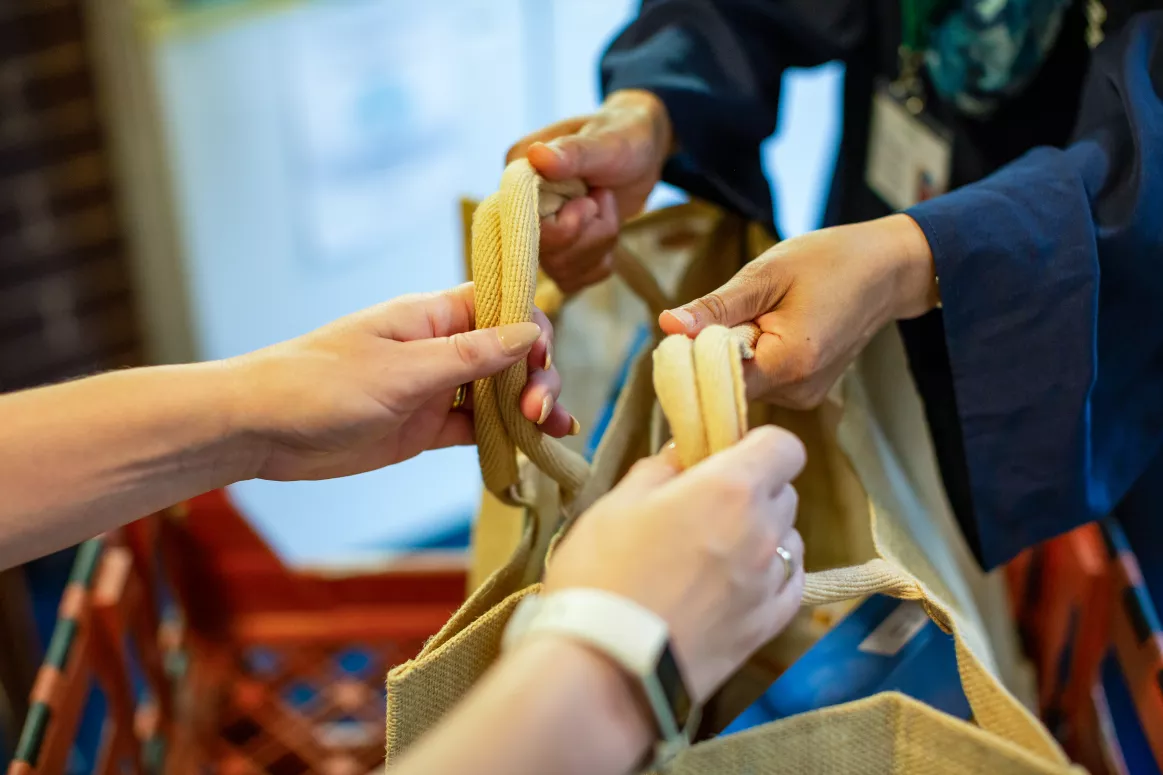Evaluating our money matters advice and support services
The University of Bristol independently evaluated the advice and support services that we have been supporting food banks in our community to deliver.
The report concluded that while the advice services can alleviate financial hardship and prevent people from needing a food bank in the near future (in a more sustained way than food-based responses alone), in many cases they can’t solve the whole problem due to the impact of wider factors such as high rents and costs of other essentials, insufficient income from social security, and low earnings.

Download evaluation
This report, commissioned by Trussell and delivered in partnership with the University of Bristol, reveals the impact of the advice and support services on money matters provided by food banks in the Trussell community.
The services offer advice and support on money matters to people who use food banks, typically including a mix of income maximisation advice, often debt advice, and sometimes signposting, referral and wraparound services. The advice and support services are delivered mostly in partnership with local advice organisations and sometimes directly by the food bank.
The report highlights how overall, the holistic approach of food banks’ advice services is achieving good short to medium term outcomes for the people using them. According to the report, the services have strong capability to take people from needing a food bank to a place where their finances are more stable and can reduce the need for emergency food. This can make an enormous difference to people’s overall wellbeing.
However, the report also sheds a light on how many people using these services have not been able to receive the support they needed before reaching the point of accessing a food bank. This is due to the fact that the advice sector is under strain, because of increased demand, case complexity, funding constraints and reduced staffing, all of which affect the ability of services to meet demand or reach people with unmet needs.
Furthermore, the report states that while the advice services can alleviate financial hardship and prevent people from needing a food bank in the near future (in a more sustained way than food-based responses alone), in many cases they can’t entirely solve the problem as the wider external context of high rents and costs of other essentials, insufficient income from social security, and low earnings lead to many people’s incomes being consistently too low to cover necessary outgoing costs.
That’s why the UK government needs to take urgent action to update our social security system to ensure everyone can afford the essentials. Analysis of a range of policy options has indicated that there are options available which, if implemented, could mean that millions fewer people face hunger and hardship.
Key findings
- As part of its 2020-25 strategic plan, Together for Change, 325 food banks within the Trussell community have been delivering advice and support on money matters to people who have accessed a food bank. These food bank advice and support services are offered mostly through partnerships with local advice organisations.
- The report concluded that the holistic and person-centred nature of support that goes beyond just providing food, but also offering advice on other matters such as money, debt, housing, mental health etc., was the most effective way to support people.
- The report found that overall, the design of food bank advice services, rooted within the communities they serve, is well suited to meeting complex and ongoing needs.